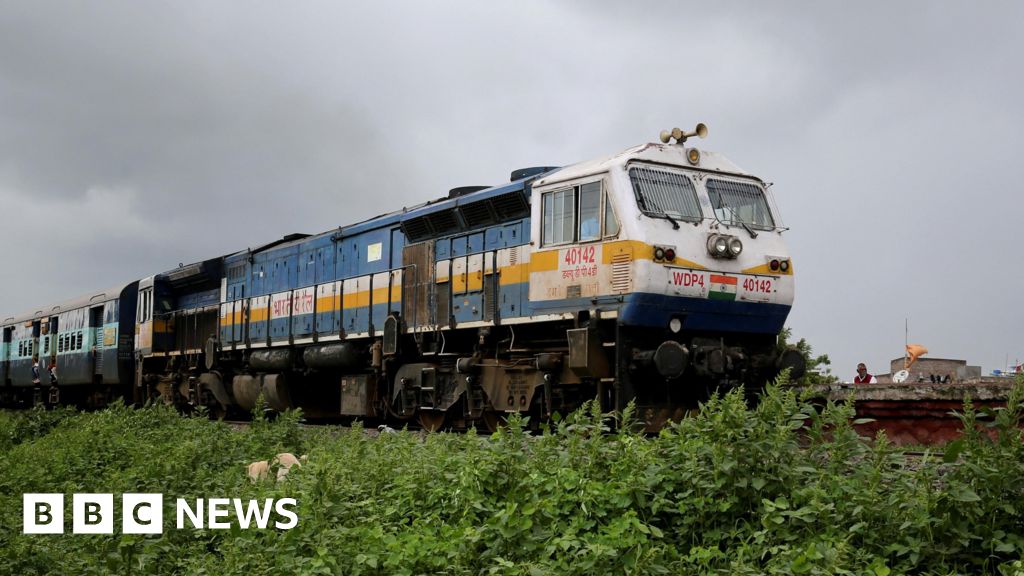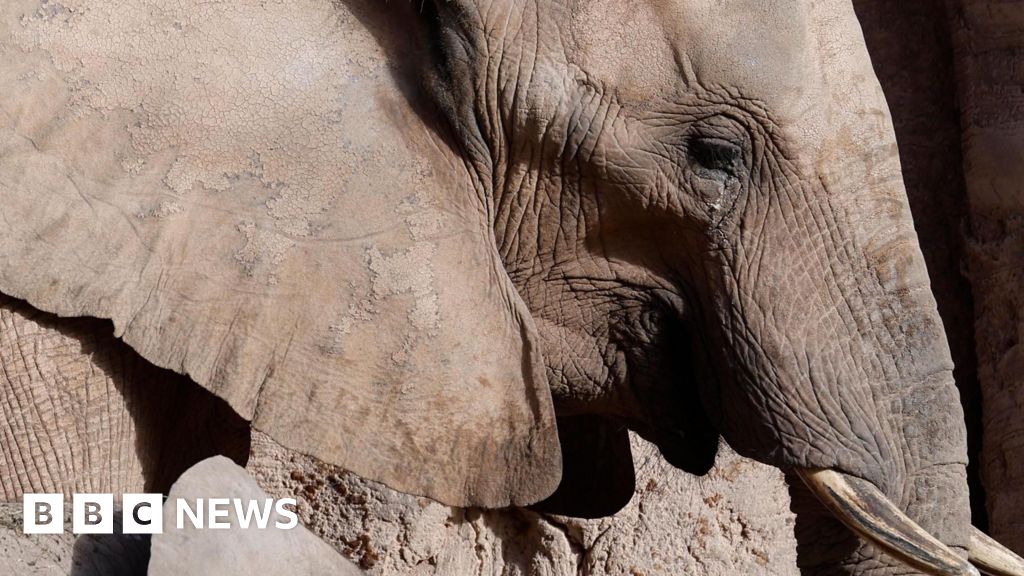ARTICLE AD BOX
 Image source, AQAP
Image source, AQAP
The US had offered a $5m bounty for Khalid Batarfi, seen here in a 2021 video message
Al-Qaeda's Yemen branch has announced the death of its leader, although the circumstances remain unclear.
A video published by al-Qaeda in the Arabian Peninsula (AQAP) showed Khalid Batarfi's body wrapped in a funeral shroud and the group's banner.
A statement read by a senior figure did not indicate how he died, but it used wording that did not suggest he was killed like his predecessor.
Batarfi, a Saudi national who was in his 40s, became AQAP's leader in 2020.
The US designated him a global terrorist in 2018 and placed a $5m (£3.9m) bounty on his head.
In the video posted on the group's outlets on social media on Sunday, AQAP official Abu Khubaib al-Sudani read out a statement that offered no details about Batarfi's death.
However, BBC Monitoring jihadist media analyst Mina al-Lami said he described him as one "who Allah took" - a phrase mostly used to describe a person who passes away, rather than someone who is killed.
Sudani also announced that AQAP's shura council had chosen Saad bin Atef al-Awlaki as the group's new chief.
UN experts said in a report last July that Batarfi and Awlaki led "conflicting wings in the group", with the latter enjoying the support of some tribes.
AQAP was once considered by the US to be the most active and dangerous regional affiliate of al-Qaeda.
It carried out a series of deadly attacks in Yemen and Saudi Arabia, as well as sophisticated airline bomb plots targeting the US that were foiled.
The group also claimed it was behind the 2015 attacks in France, in which 17 people were killed, and a 2019 attack in the US which left three dead.
The UN experts assessed that AQAP persisted as a threat in Yemen and the region, but that it was facing "setbacks and leadership losses due to sustained counter-terrorism pressure".
They cited a drone strike in February 2023 that killed a top leader, Hamad al-Tamimi, and another man who oversaw media and financial matters.
The experts said it was difficult to measure precise number of AQAP fighters because it was embedded within local tribes, but that it was estimated to be in the low thousands.
Most top leaders were believed to be in the Wadi Ubaydah area, in the central province of Marib, while others were thought to be in Hadramawt province, to the east, and Shabwa and Abyan, to the south, they added.
The group's fighters have a strong presence in Shabwa and Abyan, where they have been use hit-and-run tactics to attack Yemeni government forces and militias affiliated to the separatist Southern Transitional Council.

 10 months ago
21
10 months ago
21








 English (US) ·
English (US) ·